Facebook has published five best practices that will help businesses improve their messaging experiences with people.
On March 4, 2020, several policy changes to the Messenger platform will go into effect. The changes are meant to improve the messaging experience overall and prioritize conversations started by people.
To help businesses adapt and make the most of these changes, Facebook has published five best practices that they can have in mind when designing their messenger experiences.
1. Respond quickly and set customer expectations on response times
The whole point of contacting a business on Messenger is to receive a quick response. People expect this, and timely updates – Facebook says it has “found a strong correlation between responsiveness and successful business outcomes.”
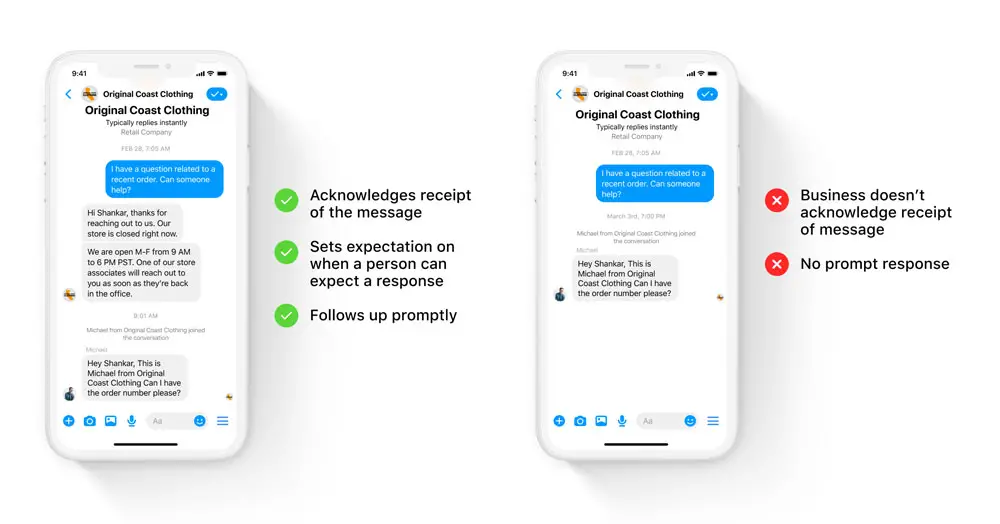
2. Make it short and sweet
People expect messaging to be easily readable. Therefore short key points should appear as early as possible in messages, increasing readability.
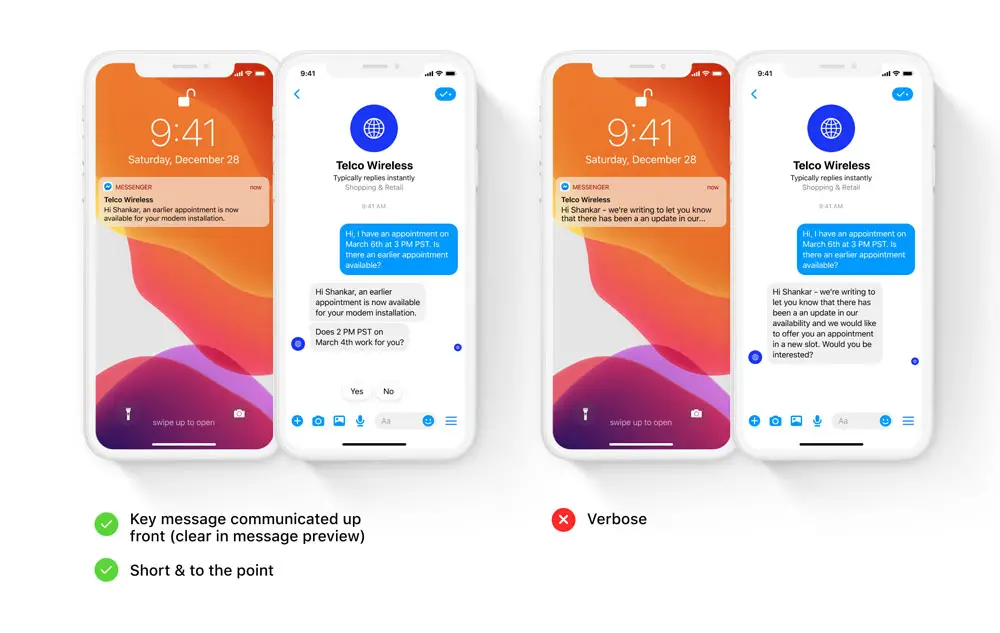
As Facebook explains, “messages that are short and to the point can also be read clearly in message previews.”
3. Leverage Messenger features to send high-value messages outside the 24-hour standard messaging window.
Messenger allows a standard messaging window, so to send messages outside this window, businesses have several options at their disposal.
Message tags – businesses can use tags to send personal, timely, and essential messages of a non-promotional nature – account updates, confirmed event updates, agent responses, or post-purchase updates.
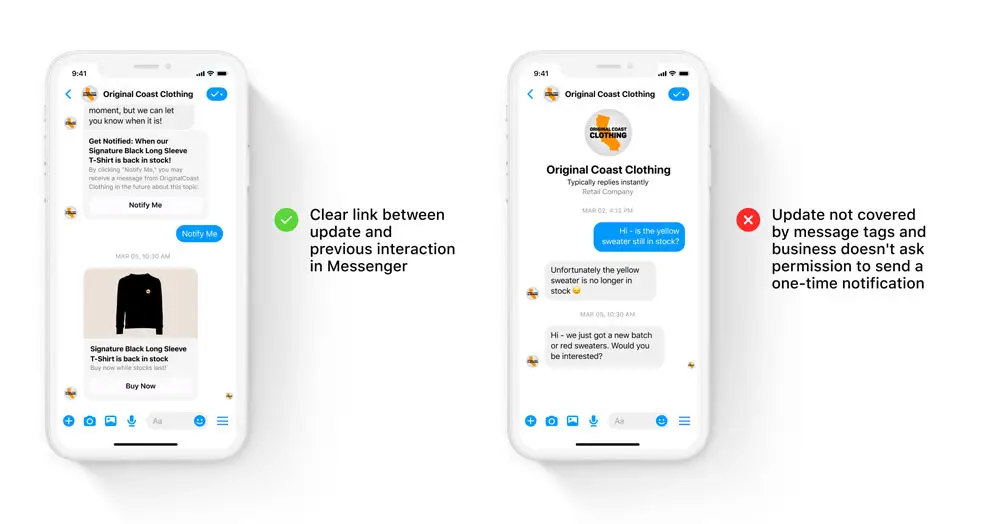
One-Time Notification – businesses can request a user to send a follow-up message after the 24-hour messaging window has lapsed. As Facebook explains, “this can be used for cases such as back in stock alerts where a person has explicitly requested the business to send out a notification.”
However, businesses need to be sure that the messages match the topics users have agreed to receive a notification for. Furthermore, businesses can prompt people to interact with a notification so that the standard messaging window is restarted.
Sponsored Messages – businesses can use sponsored messages to broadcast promotional updates to customers they’ve interacted with, in Messenger.
They support Facebook ads targeting and have integrity controls that will help “safeguard the user experience in Messenger.”
4. Focus on customer value
Businesses need to make sure that their messages – especially those sent outside the standard messaging window – clearly communicate customer value. Low-value messages are more likely to be filtered or blocked altogether.
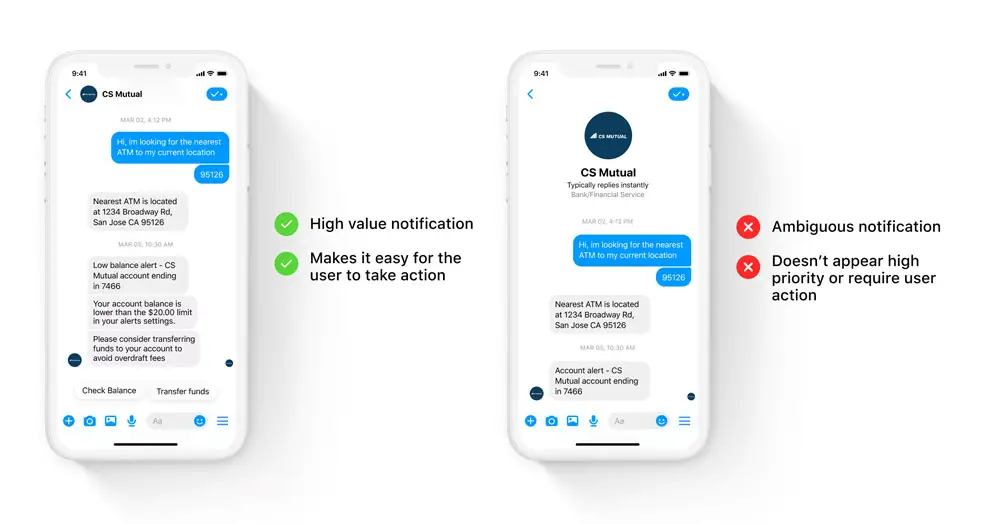
Facebook explains that Businesses “should consider adjusting push parameters for valuable messages that don’t require immediate action.”
5. Provide audiences with options to choose from.
Businesses should aim to give people more control over the content they will receive on Messenger. There are different account alerts that can be chosen, as long as they comply with the platform’s policies.
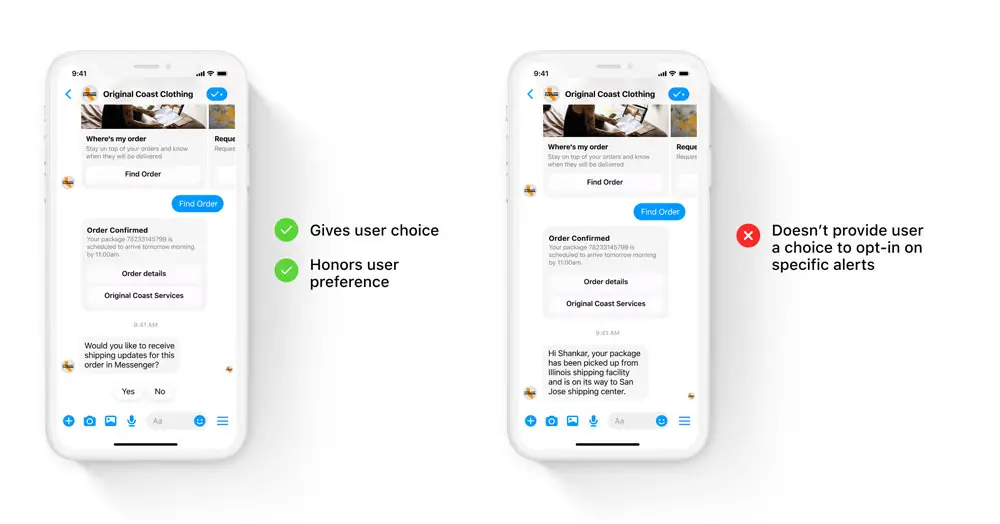
[box]Read next: Facebook Launches Creator Studio Mobile App[/box]
